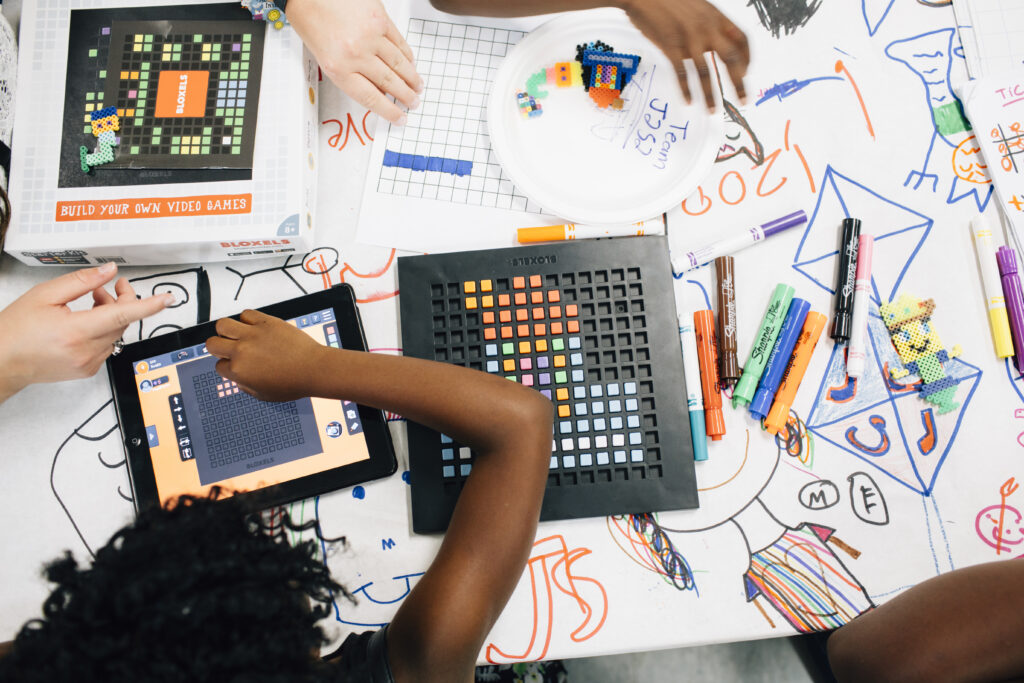Remember that third-grade cursive lesson, painstakingly fitting looping letters in a wide-ruled notebook? Or its cousin, spelling class—memorizing “i before e except after c”? Some say cursive and spelling are two education fundamentals that have been rendered dispensable in the 21st century, thanks to word processing and autocorrect.
But on the heels of the 90th Scripps National Spelling Bee, which ESPN broadcast to a captive audience for a combined 14 hours, it is worth taking a look at where these seemingly “20th century skills” fit into modern learning.
Some educators argue that rather than learning spelling, grammar, and handwriting, kids should be taught “to convey emotion and meaning through writing,” as Sugata Mitra, a British educational technology professor, told The Telegraph newspaper. He claims expressive language does not require accurate spelling.
“This emphasis on grammar and spelling, I find it a bit unnecessary, because they are skills that were very essential maybe a hundred years ago but they are not right now,” said Mitra, who thinks the future of education is child-driven. “My phone corrects my spelling,” he added, pointing out that kids have no trouble communicating in text-message-style grammar.
Some say English spelling education hinders students. With 60 percent of English words containing unpredictable letters, students may take longer to learn to read than their counterparts who speak more predictably spelled languages. Placing less emphasis on spelling could allow for earlier reading comprehension, the argument goes.
Not everyone thinks that tech tools make human knowledge obsolete. Daniel Domenech, executive director of the American Association of School Administrators, likens word processing’s relation to handwriting to a calculator’s relation to arithmetic.
“People wondered whether students needed to learn how to do math,” he said at a handwriting summit. “The answer in both cases is absolutely yes.”
Handwriting practice contributes to children’s development of important motor skills, said Amy Bastian, a neuroscientist at Johns Hopkins University. The more variety of fine motor skills, she told NPR, the greater dexterity in the long run.
Bastian’s point is a reminder that these skills are not autonomous and purely technical, unrelated to critical thinking or other intellectual development. By slashing these lessons, we may end up losing their other built-in benefits. Reading comprehension could be dependent on the mechanics, wrote education researchers Richard Gentry and Steve Graham in a white paper.
“Learning to write letters and spell words reinforces the letter-naming, phonemic, and word-deciphering skills required in developing literacy,” they wrote.
Instead of stripping curricula of spelling, handwriting, and grammar, we should continue reexamining our approach to teaching those topics. A recent Edweek webinar promoted a content-based approach to vocabulary education. One speaker, University of Michigan Education Professor Gina Cervetti, studied the effects of pairing science education with literacy lessons on fourth graders. She found they were more likely to use science words in their classroom writing. In a similar study among middle-school students, sixth graders’ general vocabulary expanded when literacy was incorporated into the science program.
We have written about the trend away from subject-based schooling. In an interdisciplinary approach, like STEAM education, students hone their problem-solving and critical-thinking skills by drawing connections between ideas, or between theory and practice. Memorizing spelling lists may be up for debate, although Gentry and Graham argue it is crucial for pattern recognition. But perhaps there is a way to learn spelling in an engaging manner that makes clear its importance in communicating concepts. Take spelling bees—the original gamification?—which turn rote memorization into a rousing competition with complex rules.
There is no question that handwriting and spelling play different roles in our 21st century lives, as do many school subjects and skills. Educators are figuring out how to make the mechanics relevant rather than simply, well, writing them off.
